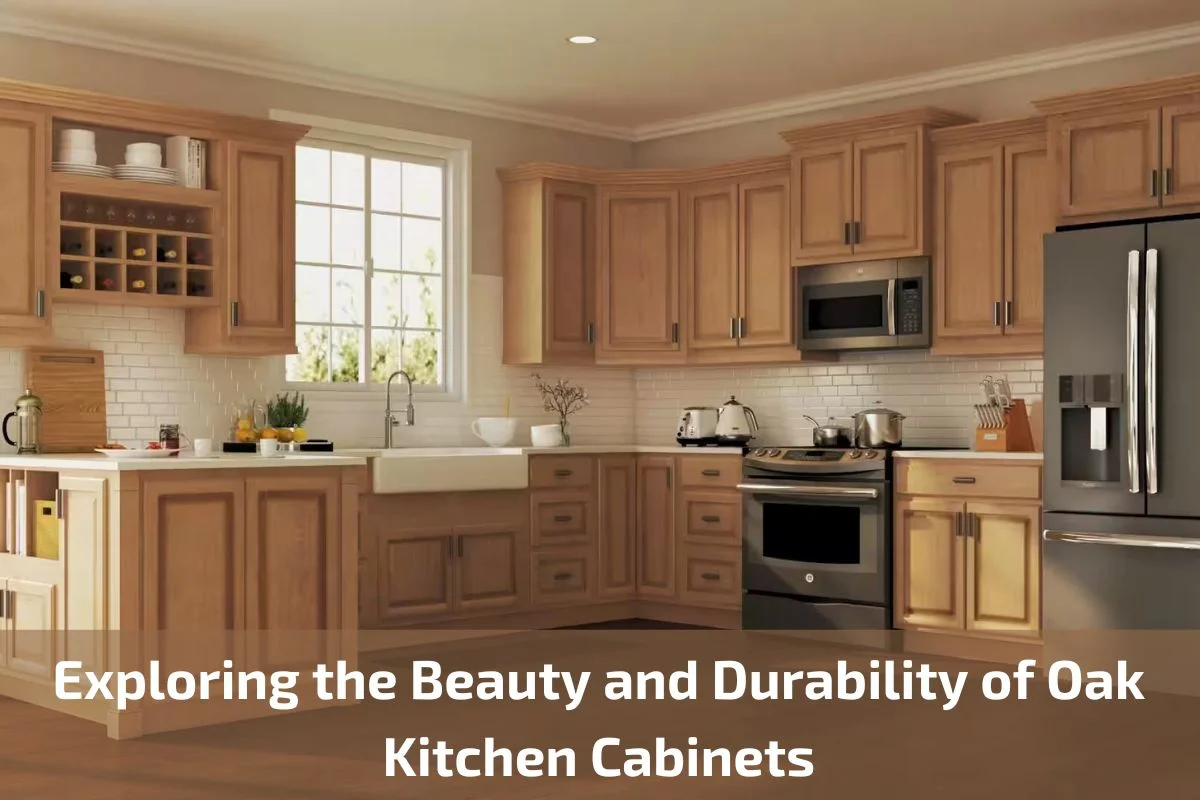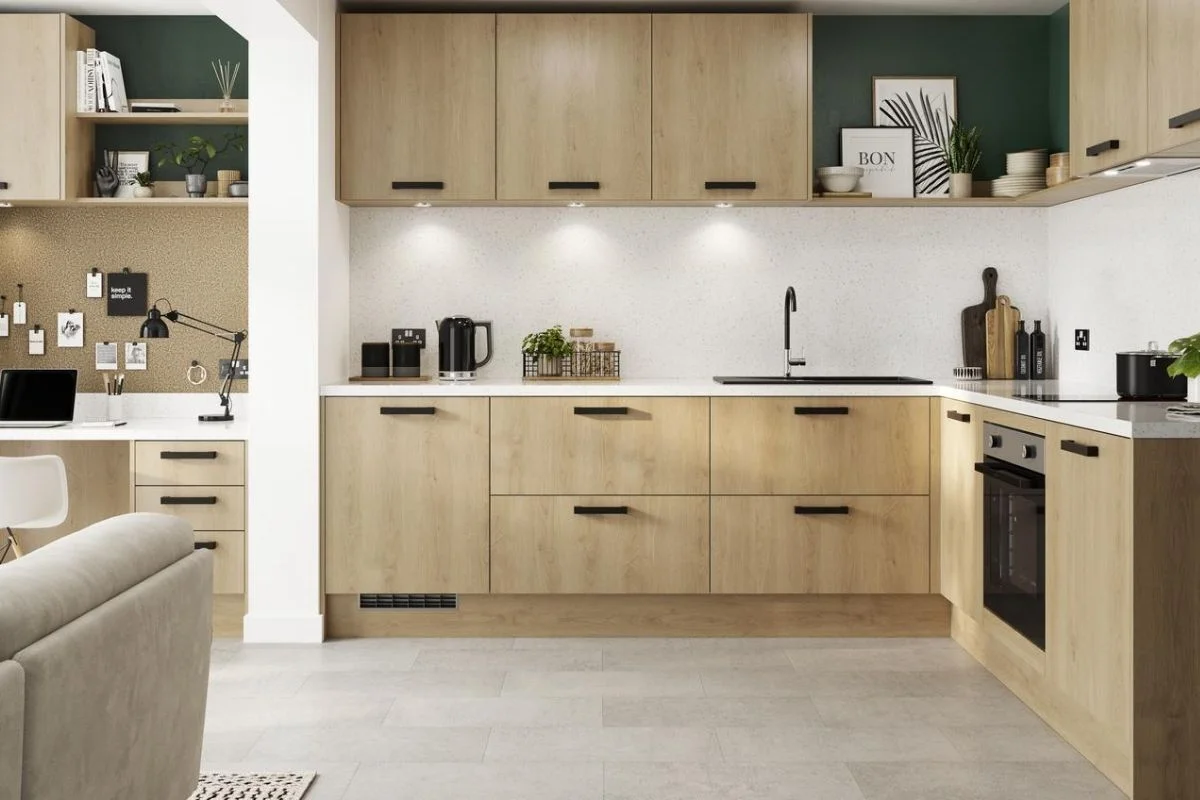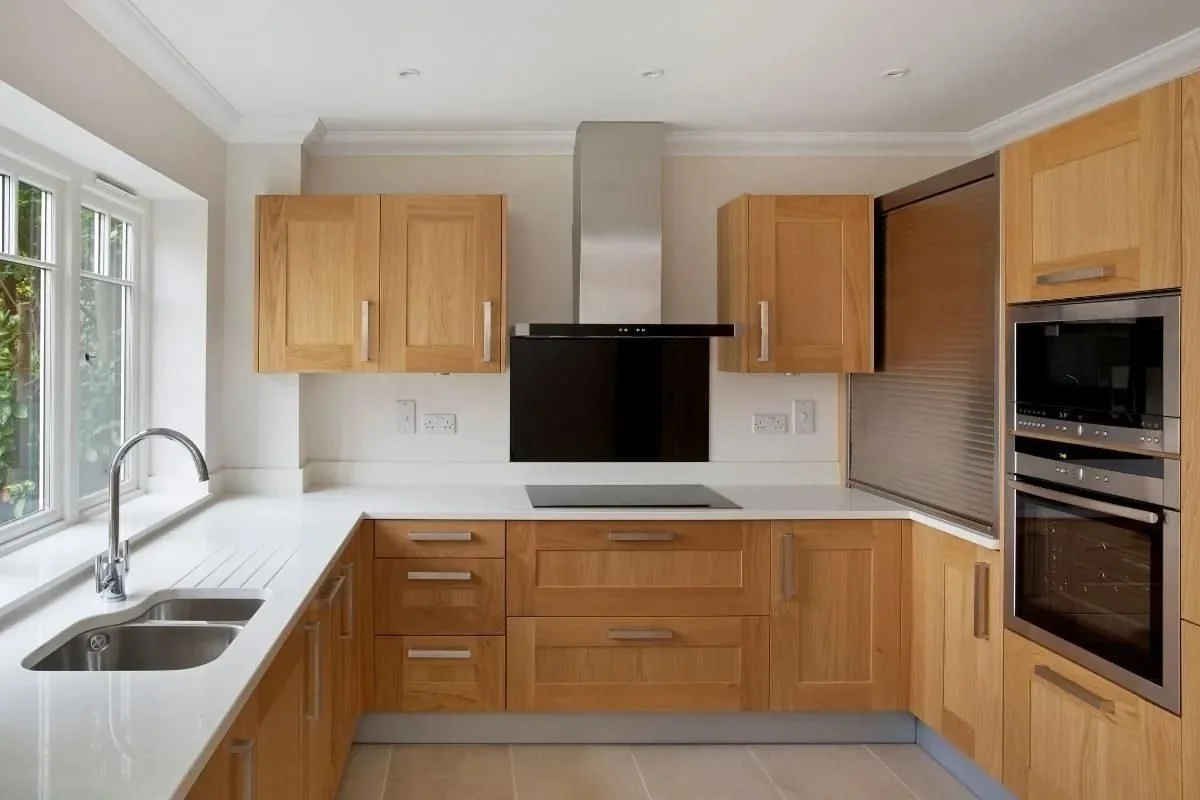Exploring the Beauty and Durability of Oak Kitchen Cabinets
Oak kitchen cabinets stand as a testament to timeless beauty and enduring quality in home design. Renowned for their natural charm, durability, and versatility, oak cabinets have remained a popular choice among homeowners for generations. In this exploration, we delve into the captivating allure of oak kitchen cabinets, uncovering the unique characteristics that make them a standout feature in any home. From their rich history to their ability to seamlessly complement a variety of design styles, oak cabinets offer a blend of sophistication and practicality that is unmatched. Join us as we embark on a journey to discover the unmatched beauty and durability that oak kitchen cabinets bring to the heart of the home.
Brief Overview of Oak Kitchen Cabinets:
Oak kitchen cabinets are a popular choice for homeowners due to their timeless appeal and durability. Made from oak wood, these cabinets offer a warm and rich aesthetic that adds character to any kitchen space. With their natural grain patterns and versatile design options, oak cabinets can complement a variety of interior styles, from traditional to contemporary. Additionally, oak is known for its strength and longevity, making it a practical choice for busy kitchen environments. In this article, we’ll explore the pros and cons of oak kitchen cabinets, as well as practical considerations to keep in mind when choosing this type of cabinetry for your home.
Importance of Choosing the Right Cabinets for Your Kitchen:
Selecting the appropriate cabinets for your kitchen is a crucial decision that significantly impacts both the functionality and aesthetics of the space. Cabinets serve as the backbone of any kitchen, providing essential storage and organization solutions while also contributing to the overall style and ambiance of the room. Here are several reasons why choosing the right cabinets is essential:
Functionality: Cabinets play a vital role in optimizing the functionality of your kitchen by providing storage for cookware, utensils, pantry items, and other essentials. Well-designed cabinets can maximize available space and make it easier to access items, improving the efficiency of meal preparation and cooking activities.
Storage Needs: Every kitchen has unique storage requirements based on factors such as the size of the household, cooking habits, and lifestyle preferences. Selecting cabinets that align with your specific storage needs ensures that you have adequate space to organize and store all your kitchen essentials conveniently.
Aesthetic Appeal: The style and appearance of kitchen cabinets significantly contribute to the overall look and feel of the space. Cabinets serve as prominent visual elements, and their design, color, and material choice can enhance the aesthetic appeal of the kitchen. Choosing cabinets that complement the existing decor or desired design theme helps create a cohesive and visually pleasing environment.
Long-Term Investment: Kitchen cabinets are a long-term investment in your home. Investing in high-quality, durable cabinets ensures that they withstand daily use and maintain their functionality and appearance for years to come. Selecting cabinets made from robust materials and featuring superior craftsmanship can ultimately save you money by reducing the need for frequent replacements or repairs.
Home Value: The quality and design of kitchen cabinets significantly impact the overall value of your home. Upgrading to stylish and well-designed cabinets can enhance the perceived value of your property, making it more attractive to potential buyers if you decide to sell in the future. Conversely, outdated or poorly maintained cabinets can detract from the appeal of your home and potentially lower its resale value.
Different types of oak kitchen cabinets
There are several different types of oak kitchen cabinets, each offering unique characteristics and design options to suit various preferences and styles. Some of the most common types of oak kitchen cabinets include:
Red Oak Cabinets: Red oak is one of the most popular types of oak used for kitchen cabinets. It features a warm, reddish-brown hue with prominent grain patterns that add depth and character to the cabinets. Red oak cabinets can be stained in a variety of shades to achieve different looks, from light honey tones to rich, dark finishes.
White Oak Cabinets: White oak has a lighter coloration compared to red oak, with a subtle gray or beige undertone. White oak cabinets have a more contemporary and minimalist aesthetic, making them ideal for modern kitchen designs. They can be stained or painted in various light or dark shades to complement different color schemes.
Quarter Sawn Oak Cabinets: Quarter sawn oak is a cutting technique that results in a unique grain pattern characterized by straight, parallel lines. This method enhances the stability and durability of the wood while also showcasing its natural beauty. Quarter sawn oak cabinets have a distinctive appearance that adds visual interest to the kitchen.
Rift Sawn Oak Cabinets: Rift sawn oak is another cutting technique that produces a straight grain pattern, but with less pronounced flecking compared to quarter sawn oak. Rift sawn oak cabinets have a sleek and uniform appearance, making them well-suited for contemporary or transitional kitchen designs.
Mission Style Oak Cabinets: Mission style cabinets are inspired by the Arts and Crafts movement and feature simple, clean lines and minimal ornamentation. They are often made from oak wood and showcase the natural beauty of the grain through a clear or lightly stained finish. Mission style oak cabinets offer a timeless and classic look that complements a range of interior styles.
Traditional Oak Cabinets: Traditional oak cabinets typically feature raised panel doors, decorative molding, and ornate hardware, reflecting a classic and elegant aesthetic. These cabinets are well-suited for traditional or formal kitchen designs and can be customized with various finishes and details to achieve the desired look.
Practical Considerations: Pros and Cons of Oak Kitchen Cabinets
When considering oak kitchen cabinets for your home, it’s essential to weigh the practical aspects alongside the aesthetic appeal. Here, we delve into the pros and cons of opting for oak cabinets to help you make an informed decision.
Pros:
Durability: Oak is renowned for its sturdiness, making it an excellent choice for kitchen cabinets that withstand daily wear and tear.
Natural Beauty: Oak boasts a warm, inviting appearance with distinctive grain patterns, adding a touch of natural elegance to your kitchen space.
Versatility: Whether you prefer a classic or modern look, oak cabinets offer versatility. They can be stained or painted in various colors to suit your preferred aesthetic.
Value: Investing in oak cabinets can enhance the value of your home due to their timeless appeal and durability, making them a worthwhile long-term investment.
Ease of Maintenance: Maintaining oak cabinets is relatively simple, requiring only occasional polishing or waxing to keep them looking pristine.
Cons:
Cost: While oak is a popular choice, it can be pricier compared to other materials like pine or particleboard, potentially impacting your budget.
Susceptibility to Moisture: Like all wood, oak is susceptible to moisture damage if not properly sealed, leading to warping or cracking over time, particularly in humid environments.
Weight: Oak cabinets tend to be heavier than alternatives, requiring additional support during installation, which can add to the overall cost and complexity.
Yellowing Over Time: Exposure to sunlight may cause oak cabinets to develop a yellowish tint over time, altering their appearance and necessitating refinishing to restore their original color.
Maintenance Needs: While oak cabinets are relatively low-maintenance, they may require occasional refinishing or resealing to preserve their appearance and durability, which can be time-consuming and costly.
Maintenance Tips of oak kitchen cabinets
Regular Cleaning: Wipe down your oak cabinets regularly with a soft cloth or sponge dampened with water and mild dish soap to remove dust, grease, and grime. Avoid using harsh chemical cleaners that can damage the wood finish.
Avoid Excess Moisture: Oak is susceptible to moisture damage, so be mindful of spills and splashes around your cabinets. Immediately wipe up any spills to prevent water from seeping into the wood and causing warping or staining.
Gentle Polishing: Periodically polish your oak cabinets with a high-quality wood polish or furniture wax to nourish the wood and maintain its natural luster. Apply the polish with a soft cloth in the direction of the wood grain, then buff to a shine.
Avoid Direct Sunlight: Prolonged exposure to direct sunlight can cause oak cabinets to fade or develop a yellowish tint over time. Install window treatments or use UV-blocking film on windows to minimize sun exposure and protect your cabinets.
Handle with Care: Use caution when opening and closing cabinet doors and drawers to avoid damaging the hinges or hardware. Avoid slamming doors shut, as this can cause stress on the wood joints and lead to premature wear.
Routine Inspection: Regularly inspect your oak cabinets for any signs of damage or wear, such as loose hinges, cracked panels, or worn finishes. Address any issues promptly to prevent further damage and maintain the integrity of your cabinets.
Proper Ventilation: Ensure adequate ventilation in your kitchen to prevent moisture buildup, which can contribute to mold growth and wood damage. Use exhaust fans while cooking and consider installing a dehumidifier if your kitchen is prone to high humidity levels.
Avoid Abrasive Materials: When cleaning or polishing your oak cabinets, avoid using abrasive materials like steel wool or abrasive cleaners, as they can scratch or dull the wood finish. Stick to soft cloths, sponges, or brushes designed for use on wood surfaces.
Conclusion:
In conclusion, oak kitchen cabinets offer a timeless blend of beauty, durability, and versatility that make them a popular choice for homeowners. Throughout this article, we’ve explored the various pros and cons of opting for oak cabinets, as well as practical considerations to keep in mind when making your decision.





0 comments